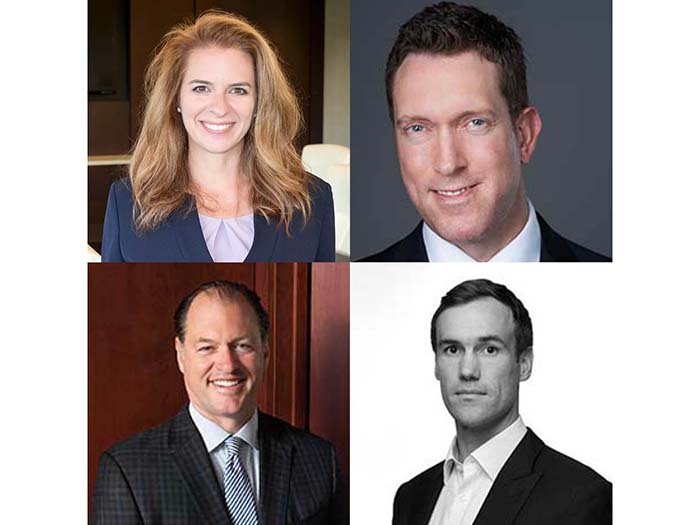Employee Mental Health Is Crucial. Let’s Push Past the Stigma and Address It Effectively

This past year, mental health and wellness were top-of-mind for employees and employers alike.
And how could it not be? We all faced the uniquely stressful experience of living and working through a global pandemic. Many struggled with mental health issues and now as we return to some kind of normalcy many are looking to heal the pandemic’s mental wounds
Mental health in workers’ comp has become such a hot-button issue that National Comp selected it to be the theme for the popular 60 Tips in 60 Minutes session during their annual conference.
The session, titled “60 Tips in 60 Minutes – Beware the Invisible Undertow of Mental Health Risks (aka How to Buy the Psych Claim the Right Way),” will feature panelists “Anne-Marie Amiel, risk manager, Columbus Consolidated Government; John Smolk, principal manager, workers’ compensation and disability management, Southern California Edison; Geralyn Datz, clinical health psychologist, Southern Behavioral Medicine Associates; Phil Walls, chief clinical officer, myMatrixx an Express Scripts Company; and Vicki Lindquist attorney/partner, Laughlin Falbo Levy Moresi.
Moderated by Stuart Colburn, shareholder at Downs Stanford, the panelists will share their favorite tips for getting ahead of any mental health hurdles that may affect claims.
Ahead of the October 22 session, Risk & Insurance® sat down with several of the 60 Tips in 60 Minutes panelists to learn more about their backgrounds and their thoughts on mental health in workers’ comp.
R&I: How did you come to work in the workers’ compensation industry?
Phil Walls: Almost 30 years ago, I answered an ad in the newspaper for a pharmacist to manage a small workers’ compensation mail order pharmacy in Tampa — PMSI. It was an exciting and turbulent time in the company’s history. During the nearly 10 years I worked there, the company was bought and sold four times and I reported to five different presidents.
Anne-Marie Amiel: I had worked in Risk Management before coming to Columbus, GA but most of my work had been as a nonprofit attorney. In that work I saw a lot of people who needed help, so transitioning to handling workers’ compensation claims alongside all the other tasks of a risk manager was not that hard.
Providing the best possible treatment as quickly as possible for our employees while simultaneously being a good steward of taxpayer dollars has been one of the most rewarding parts of my job.
I am a pain psychologist and in treating pain patients who had been injured at work, I began to learn more about the WC industry. Now I spend about 50% of my time in this realm, treating patients, providing opinions and I also educate industry and insurance audiences nationally about mental health treatment and identification.
Vicki Lindquist: I initially started my career with a civil litigation firm that had a small workers compensation practice, for which the civil litigation attorneys would occasionally be asked to cover depositions.
After a few years, and after becoming familiar with the Workers’ Compensation practice, an opportunity arose to work solely within the Workers’ Compensation Department, which I accepted without hesitation.
Some time later, an opportunity arose to join Laughlin, Falbo, Levy & Moresi LLP, one of California’s leading firms devoted to the practice of Workers Compensation and Subrogation. I Joined LFLM in 1998, and have been devoted to defending our client’s interests ever since.
Geralyn Datz: I am a pain psychologist and in treating pain patients who had been injured at work, I began to learn more about the workers’ comp industry.
Now I spend about 50% of my time in this realm, treating patients, providing opinions and I also educate industry and insurance audiences nationally about mental health treatment and identification.
R&I: What do you wish people working in the workers’ compensation industry knew about the effects of mental health on claims?
PW: Actually, I would start with mental health and the worksite, and I would encourage everyone in the industry to look at mental health as a spectrum.
An individual’s mental health may impact everything from performance on the job to workplace safety to eventually an impact on return to work if that individual is involved in an accident. This spectrum crosses the divide between group healthcare coverage and workers’ compensation coverage, which highlights the need for a holistic approach to injury state management.
The mental health needs of an individual may be very different following an accident versus what they were prior to the accident, but we cannot separate the two and we certainly cannot avoid treatment for the mental health needs.
As I have said so many times before: do the right thing clinically and everyone wins. The same is true here — do the right thing in regard to that injured worker’s mental health needs and the outcome of that claim will be much more positive for both the injured patient and the claims professional.
AA: Sometimes it can be hard for employers and insurance carriers to see beyond the physical injury and the effect of injuries on productivity.
Human beings are not made up of separate parts that have no effect on each other. The psychological impact of a serious injury, not to mention the psychological impact of something like the pandemic, can be extremely detrimental to an employee’s recovery time and to the overall health of all employees.
That’s why our program has an aggressive RTW program to keep employees involved, and why we have also tried to keep health employees engaged in their careers and their wellness. Physically and psychologically healthy employees are more productive and less accident-prone.
VL: Over the last few years, the lack of resources for people experiencing mental health problems, and the resulting impact on communities, and the employers within those communities, has become a much talked about issue.
We have seen that this also adversely affects claims, as it can delay physical recovery and extend time lost from work. Providing some extra support to claimants early on, and during the pendency of a claim, can help claimants recover more quickly and get back to work sooner, both of which can lead to reducing the costs of claims.
GD: I wish they knew that mental health symptoms are treatable, that treating them early is best (because many times they don’t go away on their own), and that treating them doesn’t have to be a ‘black hole’ for claims managers. Effective short term treatment is possible.
R&I: What made you want to speak on mental health as part of the 60 Tips in 60 Minutes session at the National Workers’ Compensation and Disability Conference?
PW: As I think back to the beginning of my career, the number one drug of concern and expense in workers’ compensation in the mid-90’s was not opioids, or benzodiazepines or even cannabis — it was Prozac, an antidepressant.
That is when I started looking at the uniqueness of pain management in workers’ compensation and recognizing that the majority of the use of Prozac in this industry was off-label for the treatment of pain.
This made me realize just how complicated it is to assess drug use, off-label use, appropriateness of use, pre-existing conditions and everything else a claims professional must consider when faced with an authorization decision. And that is when I began developing classes to help educate these professionals to accomplish the demands of a very tough job. And it continues to drive me today.
AA: Talking about employees as physical and emotional human beings is a precursor to making the workplace an environment that takes care of all aspects of those employees.
Without an understanding of human beings as they interact with people and places around them we won’t ever change the way we do things and therefore we won’t adapt our environment to changing conditions. That will decrease productivity and make everyone’s lives more difficult.
VL: This is an important issue facing our communities and the employers within them. Several states now have PTSD presumptions in effect to cover certain classes of workers, and there is a trend to expand coverage. Mental health is a real issue that affects employees, and by extension their employers and how they operate and do business.
GD: I jumped at the opportunity to present with my esteemed colleagues and I wanted to lend my perspective as a healthcare provider on the front lines with patients.
R&I: What is one tangible thing you hope the audience takes away from the session?
PW: The pandemic has impacted so many things, and has brought a spotlight on mental health in America. I believe that is a very good thing.
I want the audience to recognize that what we as a nation have gone through and continue to go through in many cases — quarantine, isolation, frustration, anxiety, possible job loss, hopelessness, depression — is the same sequelae of events that injured workers often go through as the result of a serious injury. After an injury, they cannot go to work, they become isolated, their job may be eliminated, they become anxious and depressed — and they need treatment in many cases.
AA: I hope that our participants can go away realizing that it doesn’t necessarily cost a lot of money to take into consideration the psychological needs of employees as well as their physical safety. When you look at the reduction in WC claims and the increase in productivity from really taking care of the whole employee the cost:benefit ratio is extremely favorable.
VL: In handling claims, if psychiatric treatment is being recommended and denied because it is beyond the scope of the workers’ compensation claim or is not approved as medically necessary, there is a real possibility that the claim may stay open longer, and be far more costly in the long run. Sometimes providing some initial support or treatment can get your employees back to work quicker and save you money.
GD: Mental health IS physical health — the connection between the mind and the body is well documented and each can worsen the other. Untamed mental health problems will worsen medical problems and vice versa. Watch for these patterns in your clients. &
 National Comp — the National Workers’ Compensation and Disability Conference — is back! We’re planning an in-person show for October, 20-22, 2021 and we’re excited to see everyone while still adhering to all safety protocols set forth by local and national health authorities at the time of the event. Register today!
National Comp — the National Workers’ Compensation and Disability Conference — is back! We’re planning an in-person show for October, 20-22, 2021 and we’re excited to see everyone while still adhering to all safety protocols set forth by local and national health authorities at the time of the event. Register today!
This year, we’ll feature seven tracks — from core content on medical and pharmaceutical management, claims and return-to-work, plus new and expanded avenues to explore like risk finance and injury prevention. All of our educational sessions are chosen for their ability to deliver sound takeaways and ideas that attendees can use right now.
In the meantime, National Comp will continue bringing you free virtual, educational content through our digital sessions series and our CompTalks program. Register today to make sure you don’t miss a digital session and check out our on-demand CompTalks library. Missed a session? Watch it here on-demand.










